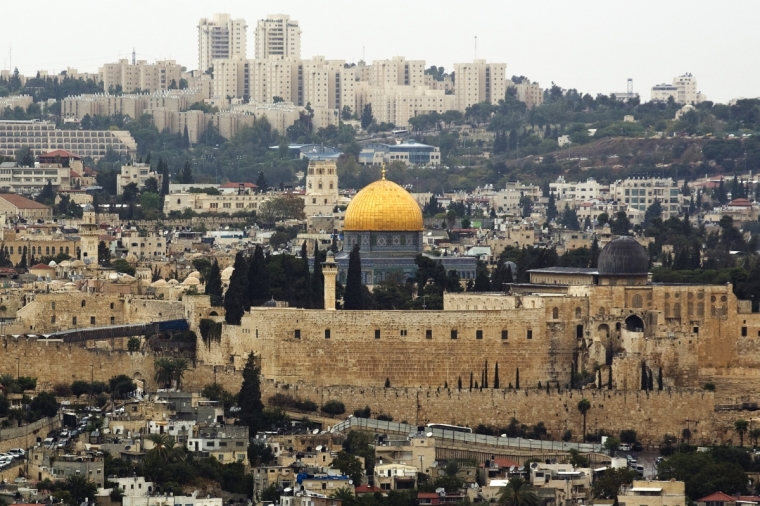Politically-motivated UNESCO denies history, calls Israel 'occupying power' -- makes no reference to 'Temple Mount''

NEW YORK (Christian Examiner) – In its latest insult to the nation of Israel, the United Nations' educational and cultural body (UNESCO) has adopted a resolution by a slim margin which denies the Jews' ancient claims to the Temple Mount.
In fact, the resolution makes no reference to the "Temple Mount," but instead refers to the location of the ancient Jewish Temple only as al-Haram al-Sharif, home of the al-Aqsa mosque.
It also refers to the Western Wall (traditionally called the "Wailing Wall") predominantly as "al-Buraq Plaza" – a site where Muslims claim Muhammad tied up his winged horse when he supposedly visited Jerusalem. No real evidence exists that Muhammad ever visited Jerusalem.
To say that Israel has no connection to the Temple Mount and the Western Wall is like saying that China has no connection to the Great Wall of China or that Egypt has no connection to the pyramids. By this absurd decision, UNESCO has lost what little legitimacy it had left.
The resolution, approved by UNESCO's executive board, was sponsored by a group of Arab nations and purports to safeguard "the cultural heritage of Palestine and the distinctive character of East Jerusalem."
Last week, Israel ceased cooperating with UNESCO as the resolution was debated, claiming that the Palestinians were "playing games" with history.
In a Facebook post, Israeli Prime Minister Benjamin Netanyahu called the passage of the resolution a performance in the "theatre of the absurd."
"To say that Israel has no connection to the Temple Mount and the Western Wall is like saying that China has no connection to the Great Wall of China or that Egypt has no connection to the pyramids. By this absurd decision, UNESCO has lost what little legitimacy it had left," Netanyahu said.
David Keyes, Netanyahu's spokesman, went so far as to invite "expert historical witnesses" to describe the Jews' association with the Temple Mount. Among those witnesses, he said, was King Solomon, the Roman Emperor Titus, and even the Supreme Muslim Council, which declared in its pamphlet, A Brief Guide to al-Haram al-Sharif, in 1925:
"The site is one of the oldest in the world. Its sanctity dates from the earliest (perhaps from pre-historic) times. Its identity with the site of Solomon's Temple is beyond dispute."
In spite of this earlier recognition of the location of the Temple, Mounir Anastas, Palestine's deputy ambassador, said he hoped the resolution would shock Israel into making adjustments in its policies, stopping "all their violations" and excavations of the areas around the Temple Mount. When Israeli archaeologists do dig around the site, they uncover more and more ancient evidence of the Jewish presence at the site.
In the resolution, proposed by Algeria, Egypt, Lebanon, Morocco, Oman, Qatar and Sudan, Israel is referred to as "the occupying power" on four occasions.
Twenty-four nations, including Russia, Iran and China, voted in favor of the resolution. Twenty-six nations abstained. Only Germany, Estonia, Lithuania, the Netherlands, the United Kingdom and United States voted against it.
In a commentary in the Jerusalem Post, columnist Tovar Lazaroff wrote that Israel will have to fight more battles over resolutions like the one passed by the UNESCO board.
"Until the nations of the world are willing to vote for history instead of politics, or until the UN finds a way to set a basic accuracy standard that resolution must meet, Israel will find itself again and again battling against such texts," Lazaroff wrote.